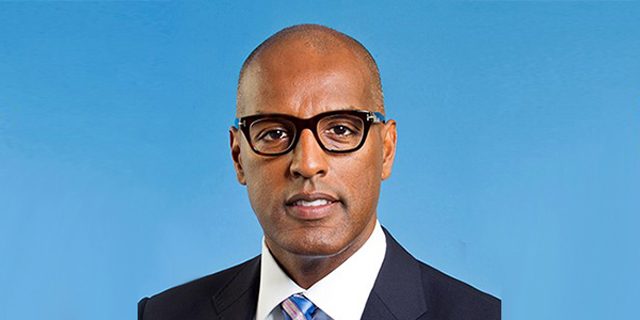[Ministerial statement by Minister of Finance Curtis Dickinson]
Mr. Speaker, I rise this morning to provide this Honourable House with an update on the Ministry of Finance COVID-19 Fiscal Plan and the formation of Government’s new COVID-19 Economic Advisory Committee.
Mr. Speaker, in my Ministerial Statement of 8th May, 2020, I advised this Honorable House that to appropriately navigate the crisis created by the COVID-19 pandemic, we would require the input and advice from all stakeholders in the Bermudacommunity, and to assist I would be establishing a COVID-19 Economic Advisory Committee.
Mr. Speaker, I am pleased to announce in this Honourable House, the members of the new COVID-19 Economic Advisory Committee. I will chair the Committee, and have appointed the following 11 people to serve as members:
- Ms. Teresa Chatfield, Owner/Director, MEF Bermuda;
- Mr. Dennis Fagundo, Co-Managing Director, D&J Construction and President, Chamber of Commerce;
- Mr. Chris Furbert, President, Bermuda Industrial Union;
- The Honorable Patricia J. Gordon-Pamplin, JP, MP, Shadow Minister of Finance & Health;
- Mr. Marc Grandisson, President & Chief Executive Officer, Arch Capital Group Ltd and Deputy Chair, Association of Bermuda Insurers & Reinsurers [ABIR];
- Ms. Cheryl-Ann Lister, Chair, Bermuda National Anti-Money Laundering Committee;
- Mr. Michael Neff, Managing Director, Bermuda & International Wealth, Butterfield Group;
- Ms. Sylvia Oliveira, Chief Executive Officer, Wilton Re Bermuda and Chair, Bermuda International Long Term Insurers & Reinsurers;
- Mr. Denis Pitcher, Chief Fintech Advisor, Government of Bermuda;
- Mr. Patrick Tannock, Managing Director, AXA XL and Chair, Association of Bermuda International Companies [ABIC]; and
- Mr. Stephen Weinstein, Chief Legal Officer, Renaissance Re Holdings Ltd and Deputy Chair, Bermuda Business Development Agency.
Mr. Speaker, the first meeting of the Committee was held on Wednesday 20th May during which time we discussed organizational matters including the Committee Terms of Reference. The Economic Advisory Committee will provide insight and expert advice on how to protect jobs and stimulate economic activity during the economic crisis stemming from the COVID-19 pandemic. I look forward to working with this team to identify and eventually implement the measures to enable sustainable economic growth and mitigate the social impacts of the pandemic.
Mr. Speaker, Honourable Members are aware that to assist people out of work due to the economic impact of COVID-19, the Government quickly introduced an unemployment benefit. As I mentioned at various press conferences over recent weeks, we continue to make progress to resolve problem applications and last week we paid 1,241 applicants for the first time. Yesterday we processed a mid-cycle payment to get funds to approximately 250 persons.
Mr. Speaker, we will now have paid benefits to over 9,000 persons for a total cost of approximately $23 million. We expect further payments to continue on a bi-weekly schedule, which means another payment next Friday.
It is important to continue to help people through these challenging times and this unemployment benefit, despite some start-up problems, has provided temporary assistance to persons by providing financial support to meet their basic needs. Providing emergency financial relief to these families is a responsibility that this Government takes seriously.
Mr. Speaker, in the days following the Phase One opening of our economy, more than 500 people had notified the Department of Workforce Development of their planned return to work. I am happy to report that this number has grown, and we expect it to continue as Bermuda entered Phase Two of its reopening yesterday. While economic recovery may be a long road ahead, over 1,400 individuals have now returned to work or have notified us of their impending return to work.
Mr. Speaker, I am pleased to report that the Government has implemented further emergency measures to assist businesses that have a pressing need for financial relief as a result of this pandemic.
The restaurant and bar sectors have been particularly hard hit by the significant decline in sales volume and job losses since the COVID-19 outbreak began.
Accordingly, Government will immediately institute short-term relief from payroll tax to assist these sectors. During this quarter ending 30th June 2020, payroll tax will be set at a zero rate for the restaurant and bar sectors and these businesses will also cease deducting payroll tax from employees during this period.
Mr. Speaker, the fiscal implications of these actions will be a reduction of Government revenue. However, we anticipate that this relief will ease some of the pressure on restaurants and bars, and especially the lessen the pain being experienced by many Bermudians who work in this sector.
Mr. Speaker, Honourable Members may recall that in the Budget Statement delivered earlier this year, I pledged that “… the Customs Department will ease the financial burden on retailers by making the customs duty deferral process more user-friendly. This will assist retailers with their cash flow as customs duty will not be paid upfront, but rather after they have sold at least a portion of their goods.”
In keeping with that commitment, the Customs Department will, with immediate effect, allow retailers and other commercial importers to apply for duty deferment for up to six months on imported business goods subject to a minimal surcharge.
Mr. Speaker, whereas import duty is normally payable at the time each import declaration is made to Customs; by deferring duty payment, the time of payment is delayed for six months.
Upfront duty payment can place a strain on a business’ cash flow. This strain can be exacerbated by also having to pay overseas suppliers upfront or on limited credit terms, and with associated bank charges on each transaction. This additional cost and the administrative handling of each payment increases the cost of trading. Duty deferment will allow customs traders, in particular retailers and Customs Clearing Agents, to increase the efficiency of payment handling, increase cash flow and reduce costs.
Mr. Speaker, long term duty payment deferral [more than six months] is also available in certain circumstances.
Although duty deferment was not originally intended to address the COVID-19 crisis, by reducing import duty-related merchandise carrying costs, it is hoped that this Government measure might assist some businesses to cope with the economic effects of the pandemic.
Mr. Speaker, last week, the Senate passed the legislation amending the National Pension Scheme [Occupational Pensions] Act 1998 to permit a person under the age of 65 who participates in a private, defined contribution pension plan or local retirement product, to voluntarily withdraw up to $12,000, from the period that the Act was brought into force until 30th June, 2021.
To provide further support to employers and employees during this unprecedented period it is proposed to amend the National Pension Scheme [Occupational Pensions] Act 1998 to allow for a suspension of employee and employer contributions for a period ending on 30th June, 2021.
By providing such relief for employees and employers, participating employees will see an increase in their take-home pay increase and participating employers will benefit from a reduction in operating expenses.
Mr. Speaker this will be a temporary measure that will provide temporary relief to employers and provide additional income to employees. When the suspension of contributions comes into effect this measure will provide relief and have a potentially simulative effect on our economy; with the stimulus to the economy being generated by the conversion of savings into consumer spending in the local economy and business investment in infrastructure and improvements.
Mr. Speaker, this measure is mandatory, however, employers and employees can choose to make voluntary contributions should they wish.
Mr. Speaker, the Government is mindful of the long-term implications on a plan member’s retirement income in permitting such suspensions. However, this concern must be balanced against the immediate and urgent needs in our community that has resulted from this unexpected crisis.
Mr. Speaker, I can also confirm that the Cabinet has recently approved a suspension on Social Insurance Contributions for employees and employers. This proposal will provide further relief to assist businesses and employees that have a pressing need for financial relief.
This emergency measure will be similar to the NPS suspension of contributions and employers and employees can still contribute to the Contributory Pension Fund if they wish.
These proposals are sensible and intend to ease the financial burdens on employers and employees as we navigate this pandemic.
Finally, Mr. Speaker, I can confirm that to supplement reduced revenues and additional COVID-19 related expenditures, I will – as soon as today – execute a $150 million credit facility negotiated with local financial institutions. This will supplement an already executed $20 million credit facility with a local financial institution.
This borrowing capacity, together with current cash reserves and on-going tax receipts will assist the Government in taking the appropriate actions to mitigate the impact of COVID-19 in the short- term.
Mr. Speaker, in closing I wish to once again thank all of our essential workers and everyone who is on the front line, working day and night to ensure our health and well-being. We are grateful for the sacrifice and dedication of all of those wonderful people keeping us safe, keeping this island operating, while putting their own safety at risk. Thanks also to those businesses and individuals who are generously donating funds, resources, and supplies to assist in our efforts to fight this virus.
Thank You.











